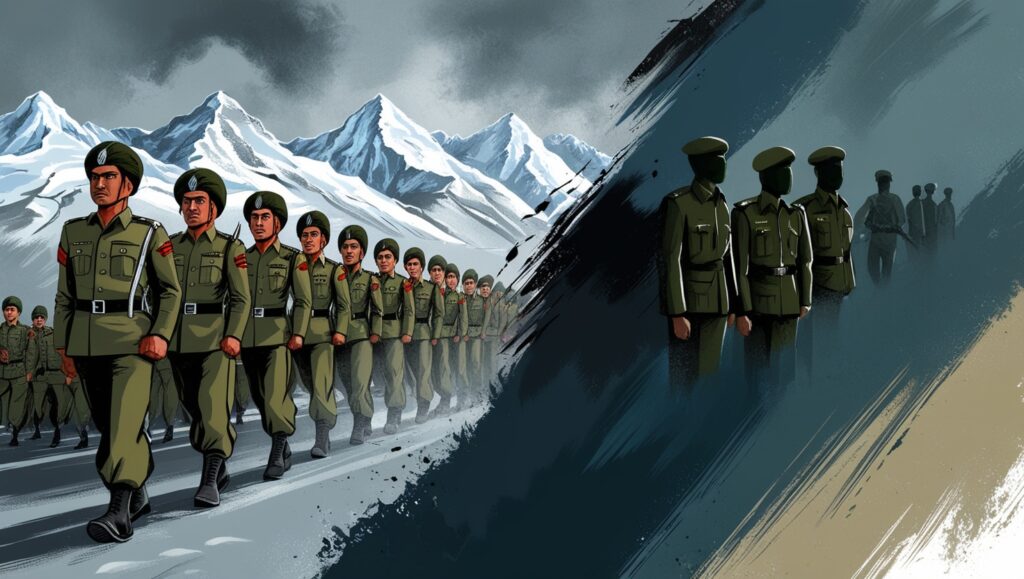Two weeks after a deadly militant attack on tourists in Indian-administered Kashmir, India has launched a series of military strikes on sites in Pakistan and Pakistan-administered Kashmir. The Indian Ministry of Defence has named the operation “Operation Sindoor”, framing it as part of a commitment to hold those responsible for the 22 April attack accountable. That attack claimed the lives of 25 Indian citizens and one Nepali tourist.
India’s Stated Objectives
India says the strikes targeted nine locations believed to be “terrorist infrastructure”—sites allegedly used to plan and coordinate attacks. Officials emphasized that no Pakistani military facilities were hit, describing the operation as “focused, measured, and non-escalatory.”
According to Delhi, the targeted areas included regions in both Pakistan-administered Kashmir and Pakistan. The intent, it claims, was to avoid civilian or military casualties and instead target only militant infrastructure.
Pakistan’s Response
Pakistan strongly condemned the strikes, calling them “unprovoked aggression.” Prime Minister Shehbaz Sharif vowed that the act “will not go unpunished.”
Pakistan’s military claims it shot down five Indian aircraft and a drone, and reported that 26 people were killed and 46 injured, with many casualties believed to be civilians. In retaliation, Indian authorities say at least 10 civilians were killed on their side due to Pakistani shelling.
Pakistan’s Defence Minister Khawaja Asif said the Indian claims of targeting terrorist camps were “false,” asserting that civilian areas in Muzaffarabad, Kotli (both in Pakistan-administered Kashmir), and Bahawalpur (Punjab province) were hit.

Background: Why India Struck
The April 22 attack in Pahalgam, a scenic resort town in Indian-administered Kashmir, marked one of the deadliest assaults on civilians in the region in two decades. Survivors said militants were targeting Hindu men specifically, stoking outrage across India.
Prime Minister Narendra Modi had vowed to track down those responsible, saying they would be “punished beyond their imagination.”
Though India has not officially named a militant group behind the attack, police allege at least two of the attackers were Pakistani nationals. Pakistan, however, denies any involvement and has rejected accusations of supporting militants.
In the wake of the attack, both countries engaged in diplomatic retaliation, including the expulsion of diplomats, visa suspensions, and closure of border crossings.
Kashmir: The Ongoing Flashpoint
Kashmir remains a deeply contested region, claimed by both India and Pakistan, but split and administered separately since their independence from Britain in 1947. The two nations have fought two wars over it and continue to treat the region as a core security concern.
Since the start of an armed insurgency in 1989, Indian-administered Kashmir has experienced frequent militant attacks. Tensions escalated significantly after India revoked Article 370 in 2019, stripping the region of its semi-autonomous status.
Past escalations include:
- 2016: India conducted “surgical strikes” after 19 soldiers died in Uri.
- 2019: Following the Pulwama suicide bombing that killed 40 Indian paramilitary troops, India launched airstrikes in Balakot, deep inside Pakistani territory. That sparked retaliatory action and an aerial dogfight.
Global Concern
The international community is urging restraint amid fears of further escalation between the two nuclear-armed neighbours.
- UN Secretary-General António Guterres has called for “maximum restraint.”
- U.S. President Donald Trump expressed hope that the situation will “end very quickly.”
As the world watches closely, the situation remains tense, with both sides trading accusations and casualties mounting on each side of the Line of Control.































